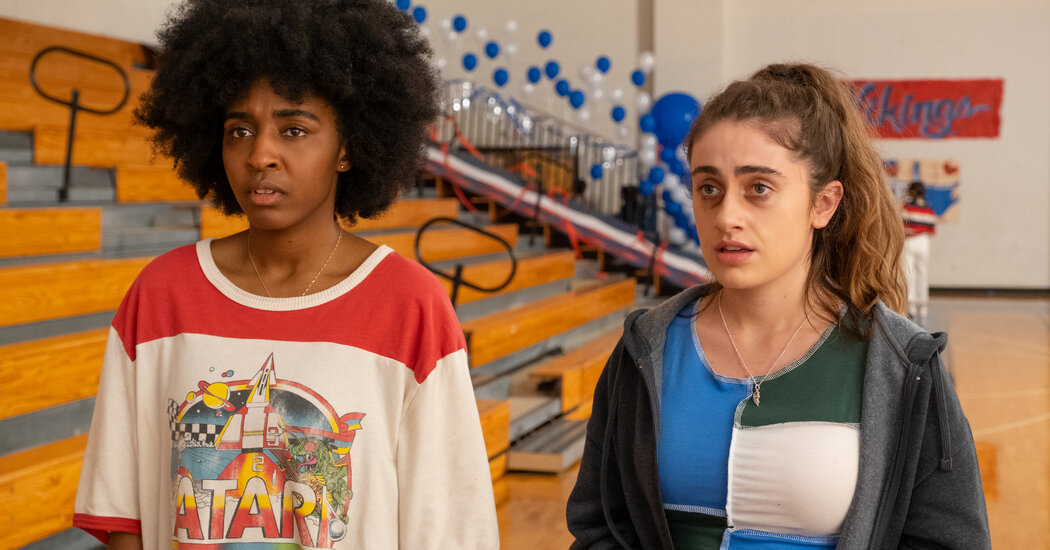“What I noticed about these three films, specifically, is also that they’re all funny and light,” Glass said. “But inevitably, I think a lot of the discussion around it is very somber. And I think what puts a lot of people off, particularly if they’re not queer themself — people get very defensive and get this idea that it’s about ticking boxes, or some kind of ‘eat your greens’ sort of thing, which is bollocks.”
Emma Seligman, who directed “Bottoms” and wrote its screenplay alongside Sennott, had a tougher time getting the film picked up. Her critically acclaimed debut, “Shiva Baby,” was not yet in theaters when she sent around the “Bottoms” script. There were so many no’s — and then one singular yes, from Alana Mayo, another queer woman, at Orion Pictures.
Queer films “always were considered cult classics,” Seligman said, “because they weren’t marketed to a broad, mainstream audience. And so then queer people had to discover them over the years. And I think that now we’re in an era of cult classics happening immediately. Because they might not do super well at the box office, but the audience who it’s intended for will discover it immediately, simply because of social media.”
Like Seligman, Ethan Coen, soloing as a director after working for years with his brother Joel, had a hard time getting “Drive-Away Dolls” off the ground with his wife and co-writer, Tricia Cooke. They wrote the script in the early 2000s, shopped it around in 2006 or 2007, and just couldn’t get anyone interested. That changed drastically in 2022, when Focus Features was completely receptive.
“I think they’re filling a void,” Cooke said. “We’ve never had lesbian comedies, or not many. And the time was ripe.” Coen quipped, “Everybody should have their stupid movies.” And now, finally, we do.
